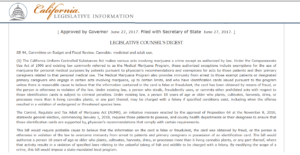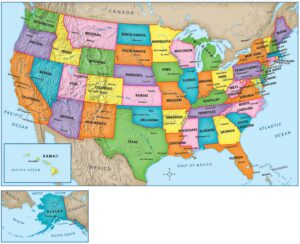https://newsmedicinehemp.info/category/news
Trump’s Tariffs and Taxes: How They Impact U.S. Cannabis Production. The cannabis industry in the United States is already operating under high regulatory and financial pressure — and Trump’s tariffs and tax policies could add an extra layer of challenges for growers, manufacturers, and retailers.
Contents
Import Tariffs on Cannabis Equipment and Supplies
Much of the equipment used in cannabis production — such as indoor grow lights, hydroponic systems, HVAC systems, packaging materials, vape hardware, and child-resistant containers — comes from abroad, particularly China, the European Union, and Southeast Asia. Trump’s tariffs on imported goods increase the cost of these supplies, driving up production expenses across the industry.
- Practical impact: Higher start-up and expansion costs, tighter margins, delayed investments, and ultimately higher prices for consumers.
Higher Consumer Prices
When production costs rise, many cannabis businesses are forced to pass those costs onto buyers. Combined with packaging and compliance requirements, tariffs make legal cannabis products more expensive.
- Consequence: Some consumers may turn back to the illegal market, reducing the competitiveness of legal businesses.
Pressure on Small Producers
Small cannabis businesses have limited resources to absorb tariff-driven costs. They often rely heavily on imported equipment and packaging, making them more vulnerable to Trump’s tariff policies.
- Impact: Reduced profitability, consolidation in the industry, and slower adoption of new technologies.
Supply Chain and Competitiveness
Import tariffs not only increase costs but also create supply chain delays. While some companies are trying to shift to U.S. suppliers, domestic production capacity is not always sufficient, leading to quality trade-offs and slower market growth.
Federal Tax Burden: Section 280E
Beyond tariffs, cannabis companies face an additional challenge under federal tax law. Because cannabis is still classified as a Schedule I substance, businesses cannot deduct normal expenses like rent, utilities, or salaries under IRS Code Section 280E. This results in extremely high effective tax rates. If the plant were rescheduled to Schedule III, businesses could finally claim these deductions, significantly reducing their tax burden.
Investment and Market Confidence
Uncertainty around tariffs, high operating costs, and a heavy tax load discourage investors from entering the cannabis space. Capital becomes harder to access, slowing down innovation, research, and expansion.
Possible Silver Linings
- A rescheduling of cannabis under federal law could offset some of the financial strain caused by tariffs.
- Domestic manufacturers of equipment and packaging could benefit if the industry shifts away from imports.
- The added pressure may also push lawmakers to consider clearer regulations and even targeted tax incentives for cannabis businesses.





